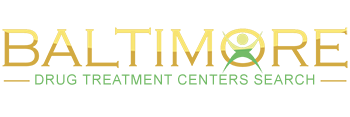Drug Addiction and Rehab in Baltimore, MD
Drug addiction in Baltimore is a major issue in the country and across the globe, but it is also an issue that many people struggle to overcome. Because drug addiction is so common, many people make assumptions about it that are not fully accurate. One of those assumptions is that drug rehab or treatment is not necessary to overcome a drug addiction. According to the Substance Abuse and Mental Health Services Administration, though, overcoming a drug addiction is almost never possible without professional treatment.
Drug Addiction vs. Dependence
An addition to drugs or alcohol is a chronic disease that is characterized by a total incapacity to cease substance use and abuse even as negative consequences occur in direct correlation with that behavior. Addiction changes the way that the brain functions and is structured on a basic chemical level as well, and has physical, mental, emotional, and even spiritual effects on a person’s life. Some of the areas of life and function specifically affected by addiction include learning, memory, relationships, reward systems in the brain, cognitive abilities, work, and finances, among many others.
Drug dependence, on the other hand, is a single component of this chronic disease. Substance abuse causes changes in the brain based on the specific chemicals in the drug that is consumed. As the drug is found in the body more and more often by the brain, the brain begins to adjust so that it considers the presence of the drug “normal.” The moment that the brain makes these changes, it has developed a dependence on the drug in question.
Treatment of Addiction
While drug dependence is not the only aspect of an addiction, it is the first that receives treatment when a person wishes to overcome an addiction. The brain is arguably the most important and influential organ in the body. When it is influenced by the presence of a medication, thoughts, feelings, and abilities (both mental and physical) are all affected as well. As such, these areas of a person’s addiction cannot be addressed when the brain is still reliant on the addicted substance.
Medical detox is the safest and surest way to overcome the chemical dependence the brain has on the drug. Under the close watch of medical professionals, a person will stop consuming the addictive substance and allow every last particle of that drug to leave the body. While this is happening, the brain is forced to begin adjusting to not having the drug in the system. As the brain struggles to get back to normal, the recovering addict will experience withdrawal symptoms.
Though withdrawal symptoms can be quite intense, under the care of a medical detox program, they may not have to be. Doctors can often administer prescription medications to lower the intensity of withdrawals and even shorten the amount of time they last by encouraging the brain to get back to normal more quickly.
After detox, the brain is not reliant on the drug anymore and a person can pursue further treatment. While it may not always be pleasant, it is important for a person to mentally go back to when they started down the path towards substance abuse and addiction to figure out why they did so. Once they know the why, they can address it through avoidance, making behavioral and life changes, or developing healthy and productive ways to cope with their issues. All of this is done in drug treatment. Other programs are also available to help a person get back to the real world and to begin rebuilding their life going forward.
Contact Baltimore Drug Treatment Centers at (410) 260-0350 with any and all questions you may have. While recovery is not easy, with the help that Baltimore Drug Treatment Centers can provide, it is within your reach.

